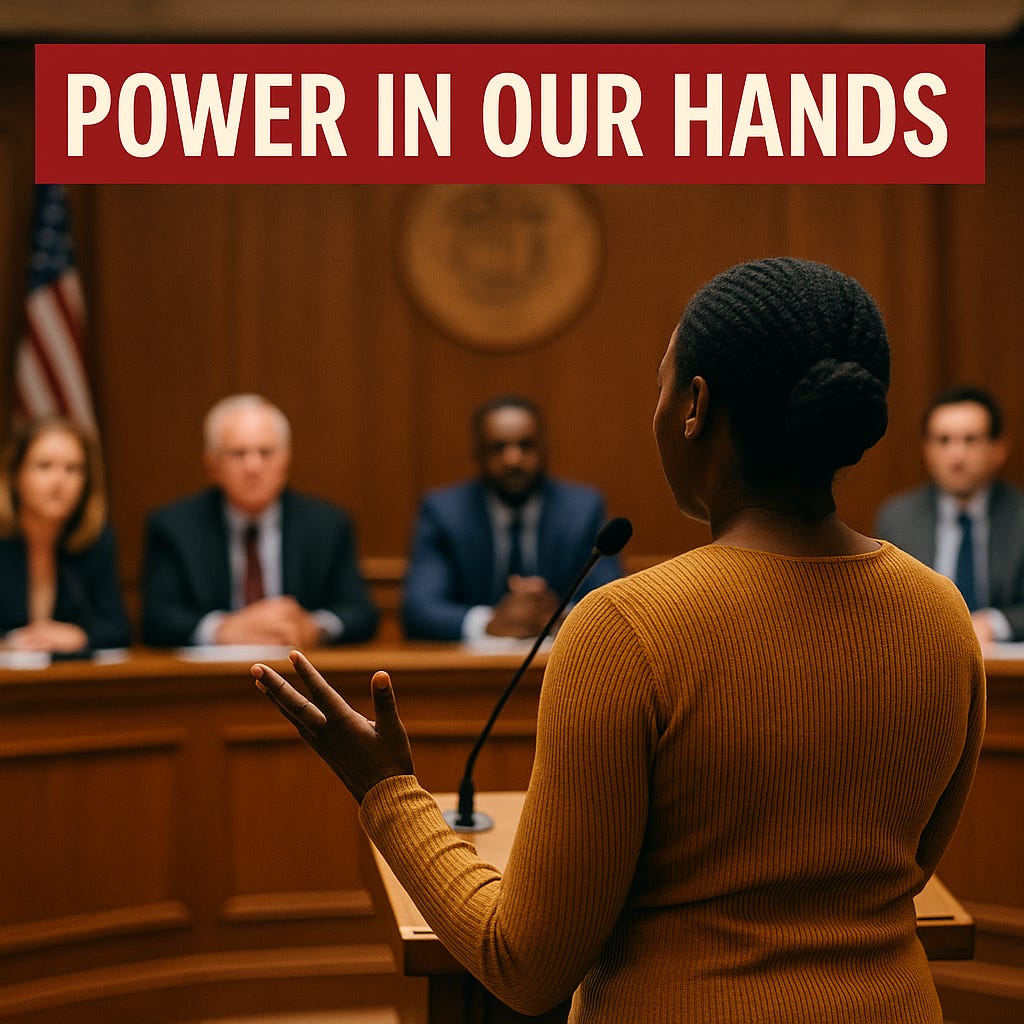Power in Our Hands: The First Move — Where the Real Decisions Happen
When people talk about “change,” most imagine speeches, rallies, or social media campaigns. Those have their place—but they’re not where the real money and decisions are made.
The truth is, the blueprint for our community’s future is drawn up in quiet rooms:
City council chambers when budgets are approved.
Planning commission meetings when land is zoned.
School board votes when programs are funded (or cut).
By the time most people hear about these decisions, they’re already law. The contracts are already signed. The opportunity is already gone.
Today, we’re changing that.
Step 1: Get Into the Room
Every city, county, and school board posts its meeting schedule online. These meetings are public, but the public rarely shows up—especially in large numbers from our community.
Action This Week:
Look up your city council and school board meeting schedules.
Pick one meeting in the next 30 days and commit to attending in person. Bring two friends.
Don’t just sit in the back—sign up to speak for 2–3 minutes during the public comment period.
Step 2: Learn the Agenda Before You Walk In
Most people walk into these meetings blind, unsure of what’s being discussed. But agendas are posted in advance—usually 48 to 72 hours before the meeting.
Action This Week:
Review the agenda for your selected meeting.
Highlight anything involving land use, budget allocations, business contracts, or funding.
Research what that vote means and who benefits.
Step 3: Speak in the Language of Power
Elected officials and decision-makers respond to two things: numbers and stories.
Numbers prove it’s worth funding. Stories make it human and urgent.
Example:
Instead of saying, “We need more resources for small businesses,” say:
“In the last 18 months, our community lost 12 Black-owned businesses, representing over 40 jobs. This proposal can reverse that trend and create $2.3 million in economic activity locally.”
Step 4: Follow Up Like It’s Business
After the meeting, email the officials you spoke to. Thank them for listening. Share a brief one-page summary of your point. Ask to meet and discuss it further.
This is how you move from “random speaker” to “recognized voice.” And when they know your name, you start getting invited to the private conversations before the public votes happen.
Why This Works
Policies are like rivers—if you can get upstream, you can shape the flow before it reaches everyone else. Once you’re in the habit of showing up, speaking up, and following up, you’ll start spotting opportunities for contracts, grants, development projects, and investments before they’re public news.
That’s the point of Power in Our Hands: turning your presence into influence, and your influence into resources that build lasting wealth for our people.
Your Assignment This Month:
Attend one decision-making meeting.
Speak once.
Follow up within 48 hours.
Do that 3–4 times a year and watch how doors open—for you, your business, and your community.
We have Power in Our Hands. Let’s use it before someone else uses it for us.


